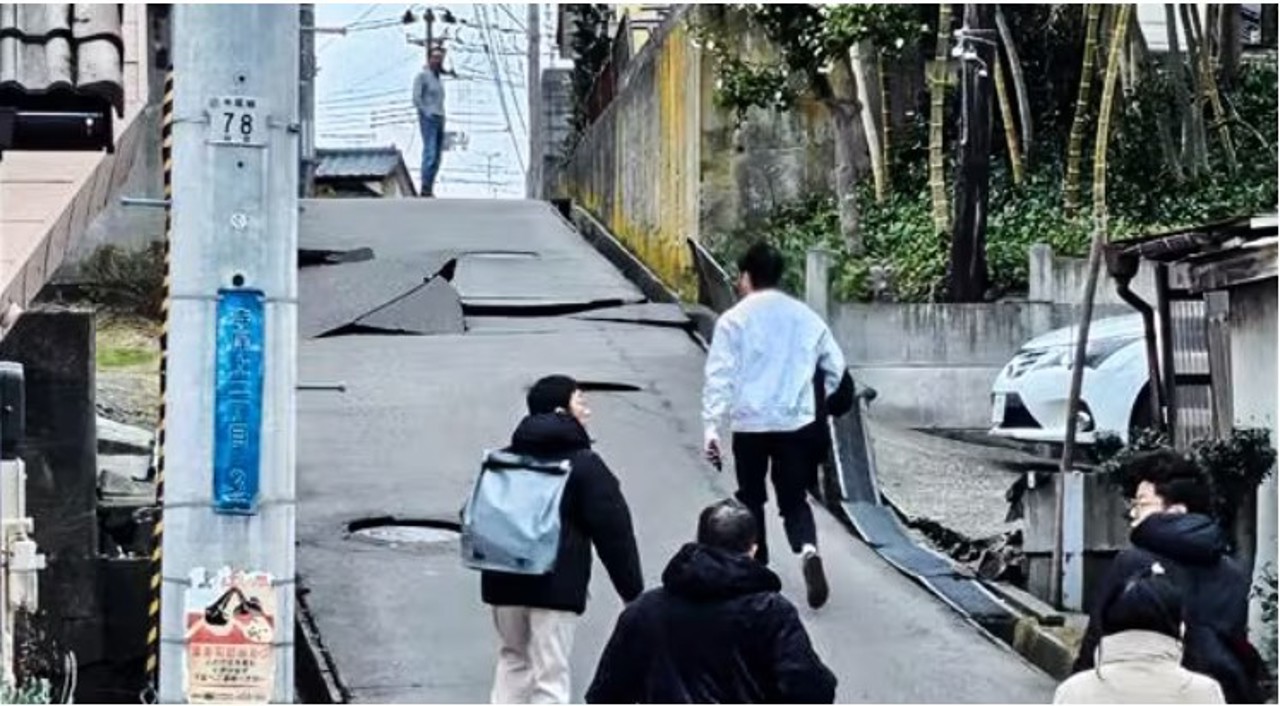Japan reels from 7.6 quake: Tsunami warnings, buildings collapse
A powerful earthquake measuring 7.6 on the Richter scale struck central Japan today, prompting urgent evacuations and triggering tsunami warnings for three coastal prefectures.

The temblor left a trail of damage, collapsing buildings and disrupting power supplies in its wake.
"Several houses have been destroyed and army units are deployed for rescue operations," declared government spokesperson Yoshimasa Hayashi, underscoring the ongoing assessment of the quake's impact.
The Japan Meteorological Agency (JMA) issued tsunami warnings for Ishikawa, Niigata, and Toyama prefectures, anticipating waves up to 5 metres high. Initial reports confirmed a 45-centimetre surge reaching South Korea's eastern coast, with warnings of potentially larger waves later. North Korea and Russia also issued precautionary tsunami alerts for their eastern coastlines.
While the epicentre lay roughly 500 kilometres from Tokyo, the capital city felt the tremors, sparking concerns of wider disruption. At least 30 buildings crumbled in Wajima, near the epicentre, according to broadcaster NHK. Over 36,000 households plunged into darkness across Ishikawa and Toyama prefectures as power lines buckled under the force of the quake.
Prime Minister Fumio Kishida urged caution, reminding citizens to brace for potential aftershocks and prepare for further emergencies. Thankfully, the Japan Nuclear Regulation Authority reported no abnormalities at any nuclear power plants along the Sea of Japan coast.
This latest earthquake comes as a grim reminder of Japan's vulnerability to seismic activity. The 2011 Tohoku earthquake and tsunami remain etched in collective memory, claiming nearly 20,000 lives and triggering the Fukushima nuclear disaster.
As rescuers scramble to assess the damage and assist evacuated residents, the full extent of the earthquake's impact is still unfolding. One thing is certain: this temblor has once again shaken Japan, leaving behind a trail of destruction and highlighting the country's enduring struggle with the forces of nature.
Translation by Iurie Tataru




